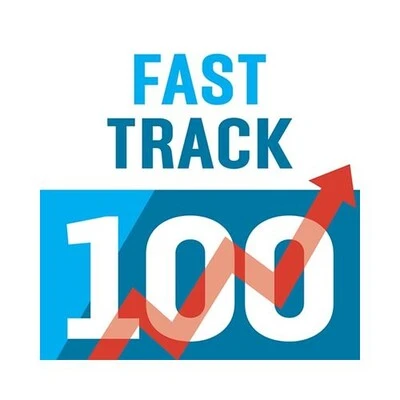This is an exclusive guest post written by Alex Staniforth in March 2022. Alex survived two avalanches on Mount Everest, an incredible feat of mental and physical strength that makes him an outstanding motivational speaker.
Somehow, it is March and 2022 doesn’t appear to be slowing down anytime soon. In our new hybrid world, the boundaries between work and home life have created an ‘always on’ culture that undermines positive wellbeing habits and offers us little protection from work stress. Over time, this can lead to a condition called ‘burnout’.
‘Burnout’ is a reaction to prolonged or chronic job stress and is characterized by three main dimensions: exhaustion, cynicism or resentment, and feelings of reduced professional ability. It can also lead to headaches, stomach aches, lack of energy, and inability to concentrate or focus. As productivity decreases, we often work later to catch up, become fatigued, resort to unhealthy coping mechanisms and eventually, we create a vicious cycle of diminishing returns.
Sound familiar? You’re not alone. Forbes found in 2020 that over two thirds, or 69%, of employees working from home exhibit signs of burnout.
Every marathon runner and endurance athlete will be familiar with the term ‘hitting the wall’, where energy drops, and you are overwhelmed by what feels like a physical block.
Running 26.2 miles (or beyond) can teach us a lot about avoiding burnout in our daily lives, where the consequences on our health and productivity are much greater than failure to win a medal and social media bragging rights!
So, how can we avoid ‘hitting the wall’?
1: Recharge, Do Not Endure
Your fuelling strategy can make or break a marathon. ‘Hitting the wall’ is usually caused by a big drop in blood glycogen - at this point, it’s often too late to recover – you should have been eating little and often.
The same is true at work, where we often only take action when we have already hit the wall. The best way to prevent burnout is to pre-emptively manage stress, as it takes significantly more energy to fight fires than to stop them from starting.
Fuelling includes everything that recharges us physically, emotionally and spiritually. Start by making a list of the things that replenish you and schedule them as part of your routine. This could be going to your local coffee shop, a lunchtime run, spending time with family, or listening to your favourite podcast. Setting a routine is also incredibly useful for maintaining habits when things get busy, which is when we probably need them the most.
We might think we don’t have time to recharge, but sacrificing these fundamentals could cost your entire race, and much more.
2: Set Boundaries
If everything is a priority, then nothing is a priority.
We generally underestimate how long things really take. One ‘quick favour’ might only take five minutes, but several quick favours can easily steal an hour from the schedule, leaving us stressed and working late to catch up.
Before agreeing to another request, pause and tell them you’ll check your diary, rather than immediately agreeing and regretting it later.
In 2020, I attempted to run the National Three Peaks challenge entirely by human power. On my final day, I decided to start at 3:00 am and run the final 46 miles in record time. The lack of sleep caught up with me until I was forced to take a power nap at a bus stop. I missed the record by just over an hour, but without the power nap, I simply wouldn’t have finished at all.
3: Stay Connected
Working remotely has obviously increased isolation, with virtual calls falling short of face-to-face interactions. We are social animals, so a support network is fundamental to our well-being, it helps us to deal with challenges and instils a sense of belonging.
During tough moments, some passing small talk with a fellow runner can shed light on the situation, if only to acknowledge you’re not the only one who is finding it tough. An unexpected friendly face by the roadside or someone waiting with a hot mug of coffee at the right moment has often made the difference between finishing and calling quits.
Creating connections could be as simple as saying hello to a passing stranger in the street, messaging a friend or calling a relative.
4: Shift the Goalpost
In 2021, I ran the Bob Graham Round, a 24-hour challenge including 46 peaks and over 60 miles through the Lake District. However, losing my water bottle on the first stage, incessant rain and navigational errors meant my plan quickly started to fall apart. With the end goal out of reach, it can be easy to lose motivation and give up.
Flexibility has been the buzzword of the remote working era. My goal was simply to reach the finish, regardless of the time taken. I finished in 27 hours and 35 minutes, raising over £2,500 for charity. When feeling overwhelmed, stop to re-assess what is realistic with your available time and resources.
5: Run Your Own Race
You will always see people starting too fast in a race, only to be walking in the final few miles or failing to finish at all. Comparing ourselves to others not only leaves us feeling inadequate but perpetuates burnout, as we strive to match their standards and push beyond our capabilities without seeing the full picture.
At the Munich 1972 Olympics, Dave Wottle had an unfortunate start to his 800m final, with an injury that hampered his training in the weeks building up to the race. He quickly fell to the back of the pack, but he held on, focused on his goal, and in an iconic feat of sporting history, managed to take the Gold medal.
Don’t be tempted to keep up with those around you: maybe they're on the edge of burnout too?
Summary
If you’re feeling burned out, a few small steps may be all you can manage when the finish line seems so far away. But awareness is the first step to taking action and going the distance. In our hectic modern lives, we cannot run away from burnout: it will always catch up with us eventually.
How will you get to the next checkpoint?
Contact the Champions Speakers agency to provisionally enquire about Alex Staniforth for your event today. Simply call a booking agent on 0207 1010 553 or complete our online contact form for more information.









